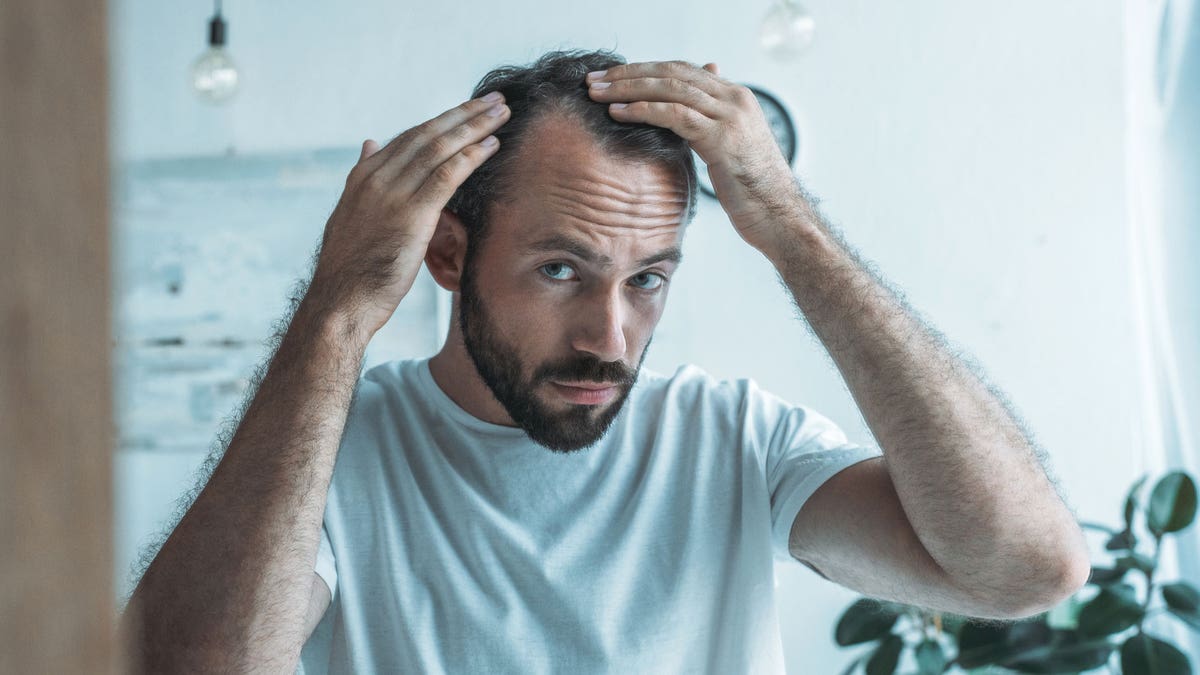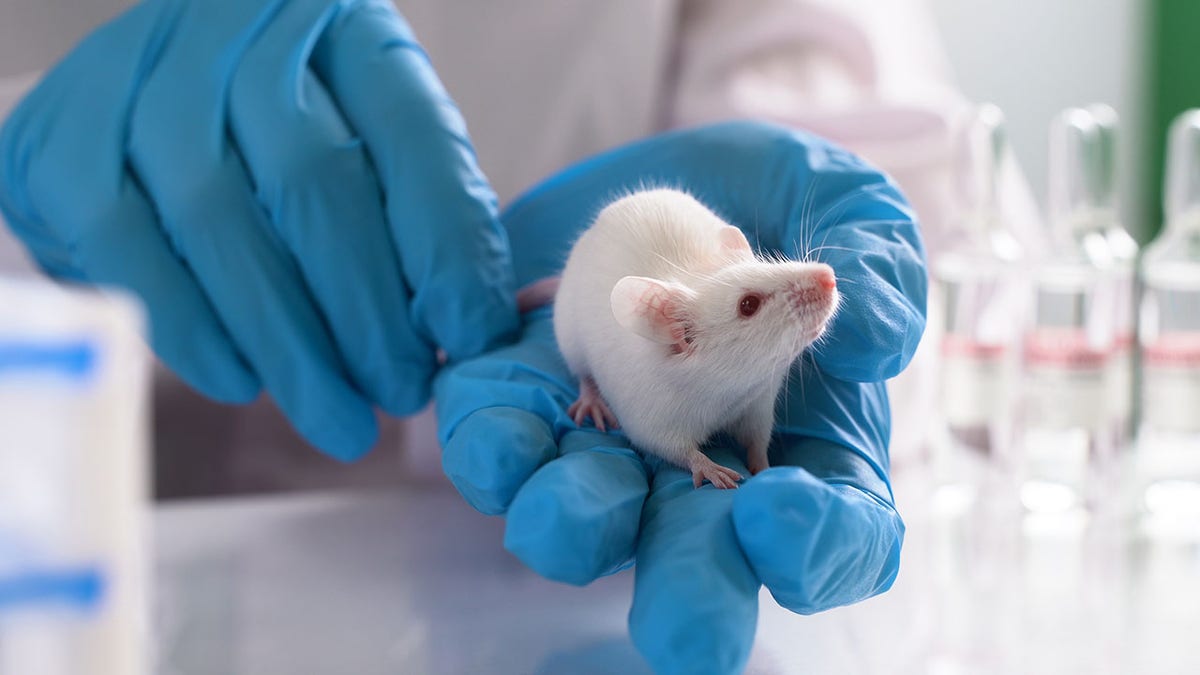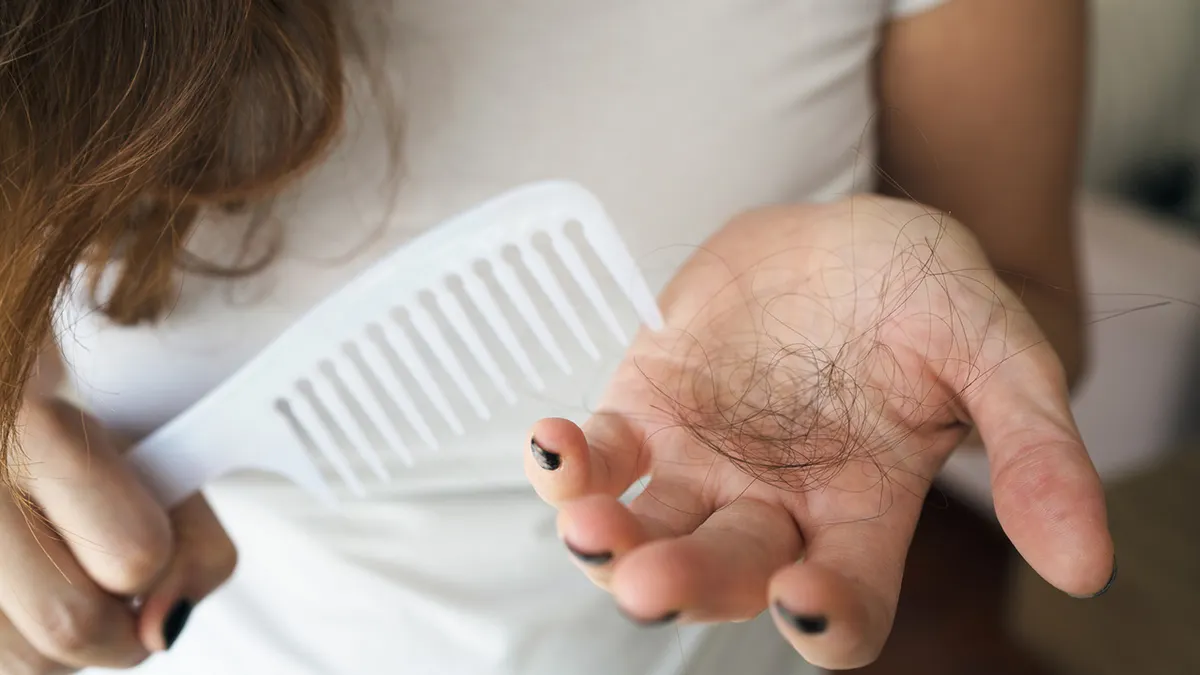
NEWYou can now listen to Fox News articles!
Researchers at the San Carlos Clinical Hospital in Madrid may have targeted a potential solution for hair loss.
A recent study analyzed the effect of injecting mice’s skin with stem cells from human fat — « adipose-derived stem cells (ASCs) » — as a means of treating androgenetic alopecia (AGA), more commonly known as male- or female-pattern hair loss.
The team found that male mice achieved the best hair regrowth after three weeks when they received low-dose ASCs, combined with an energy-boosting molecule called adenosine triphosphate (ATP).
HAIRSTYLISTS AND MEDICAL EXPERT CONFIRM TEMPORARY HAIR LOSS AFFECTING OZEMPIC USERS
Low-dose and high-dose ASC treatments along with ATP led to no hair regrowth improvement in females, but medium-dose ASC plus ATP led to greater regrowth.
The researchers concluded that hair regrowth was improved in « all experimental groups » where male mice received stem cell solutions supplemented with ATP.

Researchers at the San Carlos Clinical Hospital in Madrid may have targeted a potential solution for hair loss. (iStock)
The findings were published in the journal Stem Cell Research & Therapy.
Lead study author Dr. Eduardo López Bran — dermatologist and professor at The Complutense University of Madrid — shared his expectations for the study in an interview with Fox News Digital.
THIS DAILY BEAUTY ROUTINE COULD BE RUINING YOUR HAIR, EXPERTS WARN
« We expected good results, but not such a high level of success, » he said. « We’re talking about a very high degree of hair regrowth in both male and female mice. »
With appropriate doses, the researchers achieved « very high percentages » of hair regrowth, noting that 100% of the male mice and up to 90% of the female mice regrew hair.

With appropriate doses, the researchers achieved « very high percentages » of hair regrowth, noting that 100% of the male mice and up to 90% of the female mice regrew hair. (Actual mice from the study not pictured.) (iStock)
« These results demonstrate that advanced therapies may represent a new therapeutic approach for many diseases for which no effective treatments are currently available, » Bran went on.
« Achieving such promising results in the preclinical phase with a completely novel approach to androgenetic alopecia — one that avoids chronic treatment and is also safe — is a significant scientific milestone. »
« We’re talking about a very high degree of hair regrowth in both male and female mice. »
The main limitation of the study was the thinness of mouse skin, Bran noted, which « posed a challenge in administering the therapy. »
CLICK HERE TO GET THE FOX NEWS APP
« This required the development of protocols to minimize experimental variability, and will be a key factor when studies in humans begin, » he said.

« Research advances are pointing toward possible solutions that, in the future, may offer long-lasting results without the need for continuous treatment to maintain benefits. » (iStock)
These new findings should be « interpreted with caution and scientific rigor, » Bran cautioned.
« Although the results in mice represent significant progress, it is also true that it is essential to wait for clinical benefits in humans to be confirmed. »
CLICK HERE TO SIGN UP FOR OUR HEALTH NEWSLETTER
The researcher encouraged those with androgenetic alopecia to continue consulting with their dermatologists and to follow prescribed treatments as research develops.
« It is important to remain hopeful. Research advances are pointing toward possible solutions that, in the future, may offer long-lasting results without the need for continuous treatment to maintain benefits, » Bran added.
« This study is small, and more research is needed on this method as a potential treatment option. »
Looking ahead to human clinical trials, researchers are « actively working » on confirming safety for men and women between 18 and 50 years old with moderate androgenetic alopecia, the researcher noted.
« If everything progresses as expected, the most optimistic timeline points to the treatment becoming available in approximately five years, » he said.

Looking ahead to human clinical trials, researchers are « actively working » on confirming safety for men and women between 18 and 50 years old with moderate androgenetic alopecia. (iStock)
In a separate interview with Fox News Digital, Dr. Brendan Camp, M.D., a New York-based dermatologist who was not involved in the study, commented on the potential for this method.
« While not commercially available, this study suggests that injection of stem cells supplemented with ATP into scalp skin could potentially encourage hair regrowth in individuals with androgenetic alopecia, » he reiterated.
For more Health articles, visit www.foxnews.com/health.
« This study is small, and more research is needed on this method as a potential treatment option for androgenetic alopecia. »
Until then, Camp encourages people to focus on currently available and « well-studied » treatments to address hair loss, and to visit a board-certified dermatologist for evaluation.
